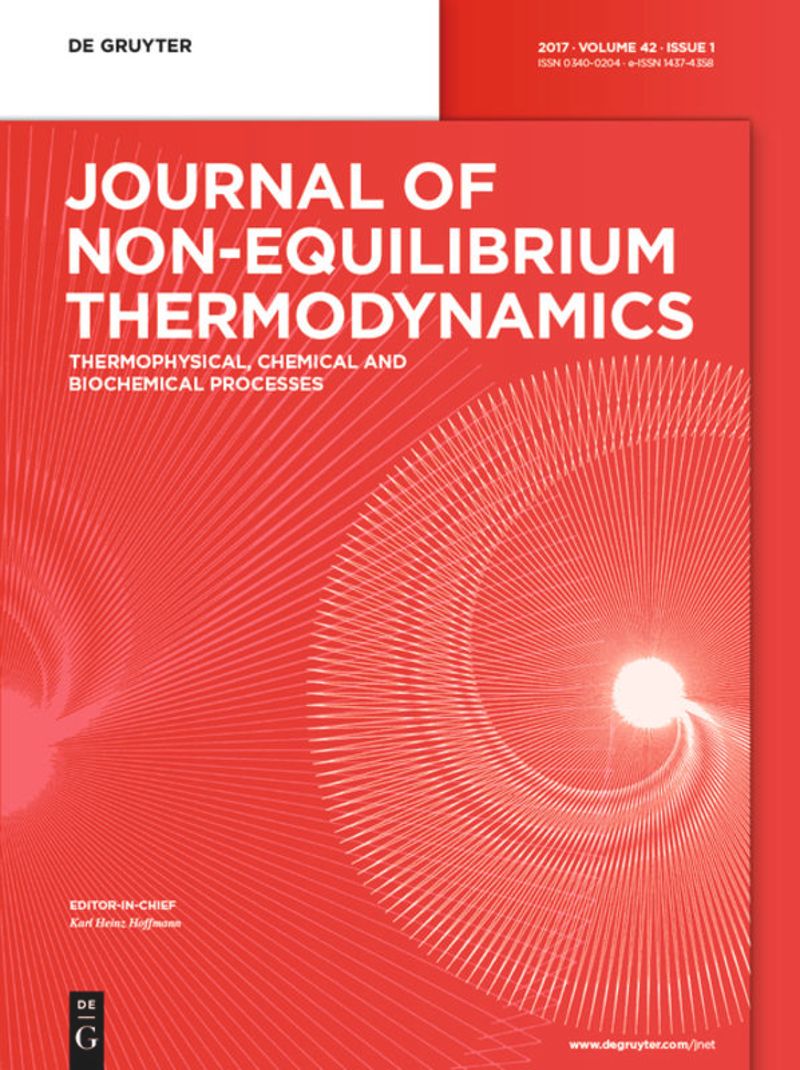斯特林循环低温冷却器活塞路径的优化
IF 4.3
3区 工程技术
Q1 MECHANICS
引用次数: 35
摘要
理想斯特林循环为斯特林循环机的活塞路径提供了一种明确的控制策略。然而,对于非平衡斯特林循环机,旨在模拟理想循环的四冲程的活塞路径不一定会产生最佳性能。在这篇文章中,我们提出了一个问题:对于特定的非平衡斯特林制冷机,cop最佳活塞路径是什么?为此,我们考虑了一个低功耗的斯特林制冷机模型,该模型由一组耦合的常微分方程组成,并考虑了几种损耗现象。针对该模型和示例参数集,采用基于最优控制理论的间接迭代梯度法对活塞路径进行优化。对工作空间的两种不同类型的体积约束进行了重复优化:一种代表α -斯特林构型,另一种代表β -斯特林构型。与谐波活塞路径相比,在最大COP工作频率下,最佳活塞路径使α -斯特林的COP显著提高约88%,β -斯特林的COP显著提高约117%。此外,尽管优化是针对最大cop进行的,但冷却功率以更大的比率增加。本文章由计算机程序翻译,如有差异,请以英文原文为准。
Optimizing the Piston Paths of Stirling Cycle Cryocoolers
Abstract The ideal Stirling cycle provides a clear control strategy for the piston paths of ideal representations of Stirling cycle machines. For non-equilibrium Stirling cycle machines however, piston paths aiming to emulate the ideal cycle’s four strokes will not necessarily yield best performance. In this contribution, we ask the question: What are the COP-optimal piston paths for specific non-equilibrium Stirling cryocoolers? To this end, we consider a low-effort Stirling cryocooler model that consists of a set of coupled ordinary differential equations and takes several loss phenomena into account. For this model and an exemplary parameter set, piston path optimizations are done with an indirect iterative gradient method based on optimal control theory. The optimizations are repeated for two different kinds of volume constraints for the working spaces: one representing an alpha-Stirling configuration, the other a beta-Stirling configuration. Compared to harmonic piston paths, the optimal piston paths lead to significant improvements in COP of ca. 88 % for the alpha-Stirling and ca. 117 % for the beta-Stirling at the maximum-COP operational frequency. Additionally—and even though the optimizations were performed for maximum COP—cooling power was increased with even lager ratios.
求助全文
通过发布文献求助,成功后即可免费获取论文全文。
去求助
来源期刊
CiteScore
9.10
自引率
18.20%
发文量
31
审稿时长
1 months
期刊介绍:
The Journal of Non-Equilibrium Thermodynamics serves as an international publication organ for new ideas, insights and results on non-equilibrium phenomena in science, engineering and related natural systems. The central aim of the journal is to provide a bridge between science and engineering and to promote scientific exchange on a) newly observed non-equilibrium phenomena, b) analytic or numeric modeling for their interpretation, c) vanguard methods to describe non-equilibrium phenomena.
Contributions should – among others – present novel approaches to analyzing, modeling and optimizing processes of engineering relevance such as transport processes of mass, momentum and energy, separation of fluid phases, reproduction of living cells, or energy conversion. The journal is particularly interested in contributions which add to the basic understanding of non-equilibrium phenomena in science and engineering, with systems of interest ranging from the macro- to the nano-level.
The Journal of Non-Equilibrium Thermodynamics has recently expanded its scope to place new emphasis on theoretical and experimental investigations of non-equilibrium phenomena in thermophysical, chemical, biochemical and abstract model systems of engineering relevance. We are therefore pleased to invite submissions which present newly observed non-equilibrium phenomena, analytic or fuzzy models for their interpretation, or new methods for their description.

 求助内容:
求助内容: 应助结果提醒方式:
应助结果提醒方式:


